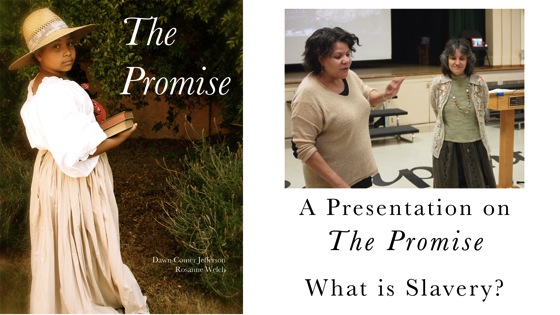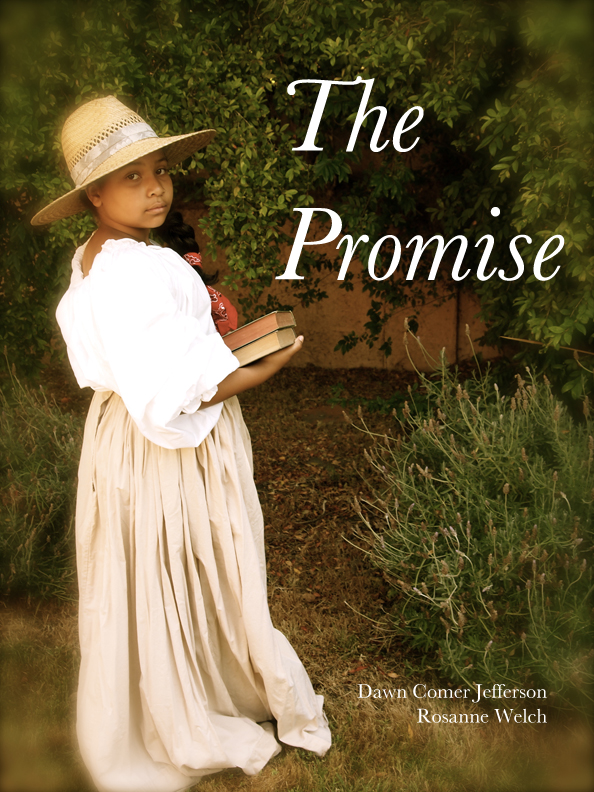Dawn Comer Jefferson (L) and Dr. Rosanne Welch (R) present on their book, The Promise
On Friday March 21st my co-author, Dawn Comer Jefferson and I had the pleasure of making a presentation on “Slavery and the Oregon Trail” based on our book The Promise to the 3rd, 4th and 5th grades of Carpenter Avenue Elementary School as the guests of the non-profit Parents For Carpenter.
Transcript:
The thing that we find interesting about slavery when we study it, it was different in the United States than it had been in the past and many people say that is why slavery eventually ended. So, in Ancient Roman times, you know people had slaves. You read about that, right? Egyptians had slaves. Everybody did, but back then, slavery happened because two different sides would battle in some war and the dudes that lost had to be the slaves of the people who won. So that is a little bit like during the Superbowl, if the team that lost then had to go and make breakfast for the dudes that won for the rest of their lives.
Because that was how it was done and that made it different in the ancient world because slaves were understood to be intelligent people who had skills. You could have your slaves teach your child how to play chess or to read or to write poetry. But when we move over to the new world of what will become the United States, we changed the rules and it becomes — “You know what? We’re only going to go to this one other part of the world and all the people there, we are going to assume are needing to be slaves. We’re going to ship them over here and suddenly we’re not going to qualify them as people anymore. They’re going to be property and legal papers, so they don’t even have status as human beings and when you do that to somebody, you start to believe, clearly, that they can’t be as good as you. No more are they someone that I have met in combat and might have beaten me. They’re just somebody who is intended to help me for the rest of my life and that destroys our respect for other people.
That is called chattel slavery and that’s what was practiced in the United States. That was what was practiced by the family that’s in this book. So they are property in this man’s world and that is why, when they travel — and he’s made this deal which is kind of interesting why he would make this deal in the first place — but when he gets to the other side, he wants to be a good guy, which is really hard to do when you’re already a slave owner — how are you also a good guy? But nobody thinks they’re a bad guy, right? Nobody thinks they’re the bad guy. But they are doing what is appropriate for the time. Exactly. They’re living up to everyone else’s things. He thinks he has to keep his word — that’s why he frees the parents, but it’s like “But I never mentioned your children. So, I’m Ok. I haven’t broken my promise, have I.” That’s the interesting complexity, we thought, when we first heard the story.

